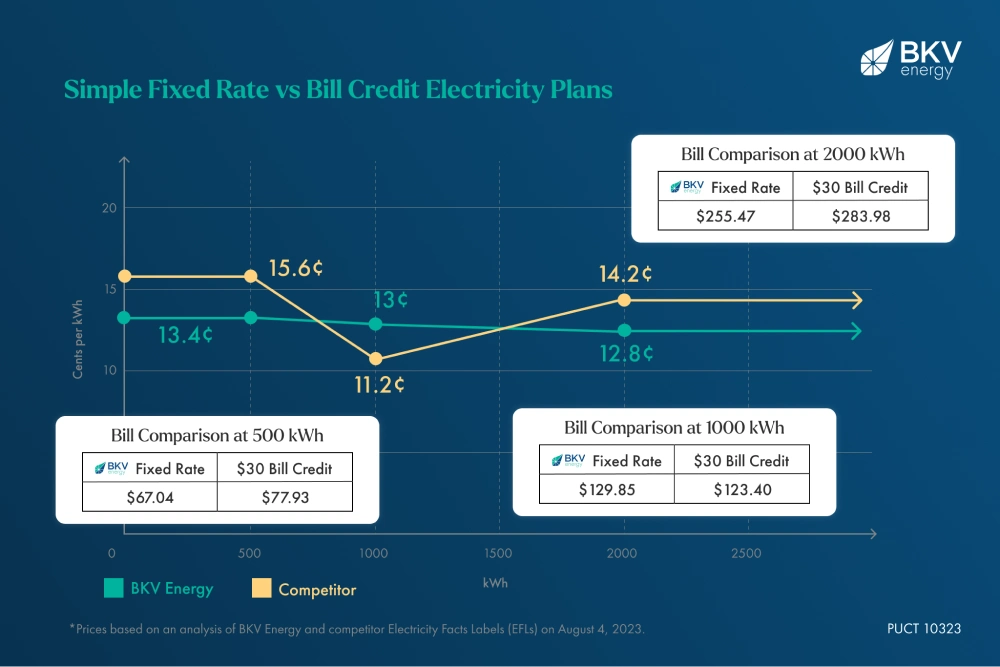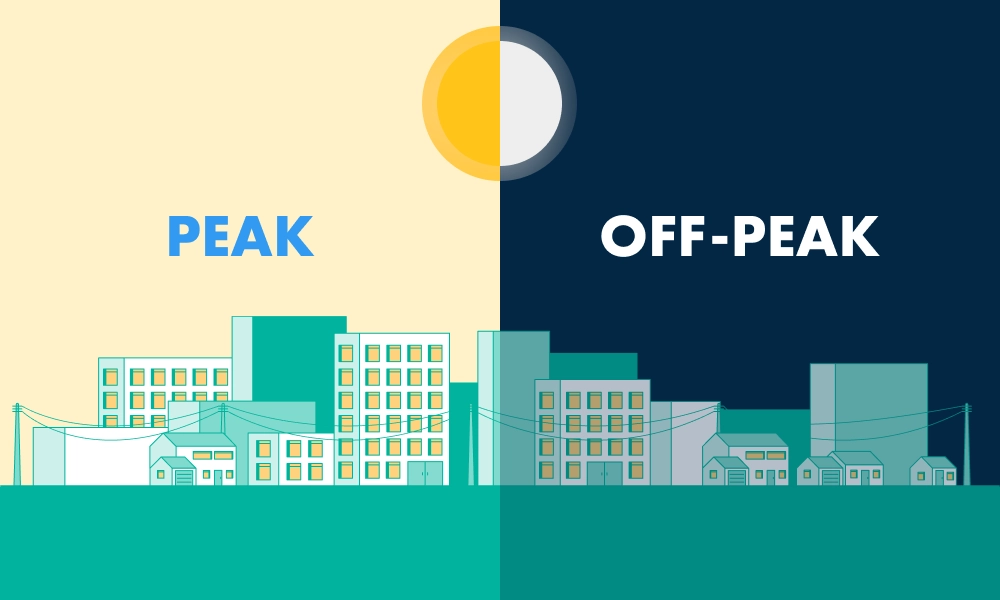What Electricity Company Services My Address
4 minute readFigure out what electricity companies service your home
Home > Learning Center > How the Energy Industry Works > Secrets Electricity Providers Don’t Want You to Know About Bill Credits
2 minute read • Last update April 2025

Bill credit plans may look tempting, but for most Texans, they’re not the smartest way to save. Opting for a simple fixed-rate electricity plan often leads to lower, more predictable bills. Enter your zip code to explore more affordable Texas home electricity.
These electricity plans give you a discount—only if your energy usage lands in a specific range.
But here’s the catch: their kWh rates are typically much higher than standard fixed-rate plans. That means if you use too much or too little energy, you’ll pay more than you should.

Before you sign up for a plan with flashy “savings,” check the Electricity Facts Label (EFL). Look for:
Bill credits are used as marketing tools by electricity providers to attract customers. If you use the right amount of energy, you get money back on your bill, but that does not mean you’ll end up spending less overall compared to another plan.
These plans are typically marketed as fixed-rate plans, ensuring that the rate you pay for electricity will remain constant, even with market fluctuations. However, the energy usage charge for a bill credit plan is comparatively higher than other plans.
This means that if your usage falls above or below the specified range of the bill credit plan, you will be subject to a higher rate for electricity than anticipated. To avoid this, it’s important to monitor your usage closely.
Identifying the optimal usage and staying within that range is key to maximizing the benefits of a bill credit plan. Should your usage fail to meet the standards set in the bill credit plan EFL, there will be no bill credit applied. Understanding your electricity usage before choosing a plan is vital, as going beyond the upper limits of the bill credit plan can lead to much, much higher bills.
Fixed-rate plans offer steady pricing with no gimmicks. You pay the same rate for every kWh you use, no matter what. No overcomplicated tiers, no surprises—just straightforward savings. Enter your zip code to explore more affordable energy plans.
Graham Lumley, Digital Marketing Manager at BKV Energy, leads digital and traditional marketing strategies, focusing on educating Texans about the state's deregulated energy market. With over 8 years of marketing experience, he creates content to help consumers understand and save on their energy bills, bringing a fresh and dynamic approach to the industry.

Figure out what electricity companies service your home

The difference between peak and off-peak hours Peak hours occur during the time of day when demand for electricity is
Get $50 off your electric bill!
Use code BKVEJOINUS50
Enter your zip code to shop BKV Energy's affordable, fixed-rate Texas electricity plans. Use the promo code for $50 off your electric bill.